I Am CALS: Todd See
With a steady presence and approachable demeanor, Todd See has helped the Department of Animal Science become a hub for student exploration, research and outreach, shaping careers and the food animal industry.
As a geneticist, Todd See, head of NC State’s Department of Animal Science, understands growth and change. He’s seen plenty of both during 17 years in leadership, remaining steadfast as enrollment nearly doubled, the pork industry restructured, and data science and technology transformed production. Perhaps the only thing that hasn’t changed is his office, which looks much the same.
Going Whole Hog
See’s future in animal science started with pigs — two bred sows that he purchased as an 8-year-old 4-H member. His family had a small farm in southeastern Michigan, where his dad worked as an engineer for Ford.
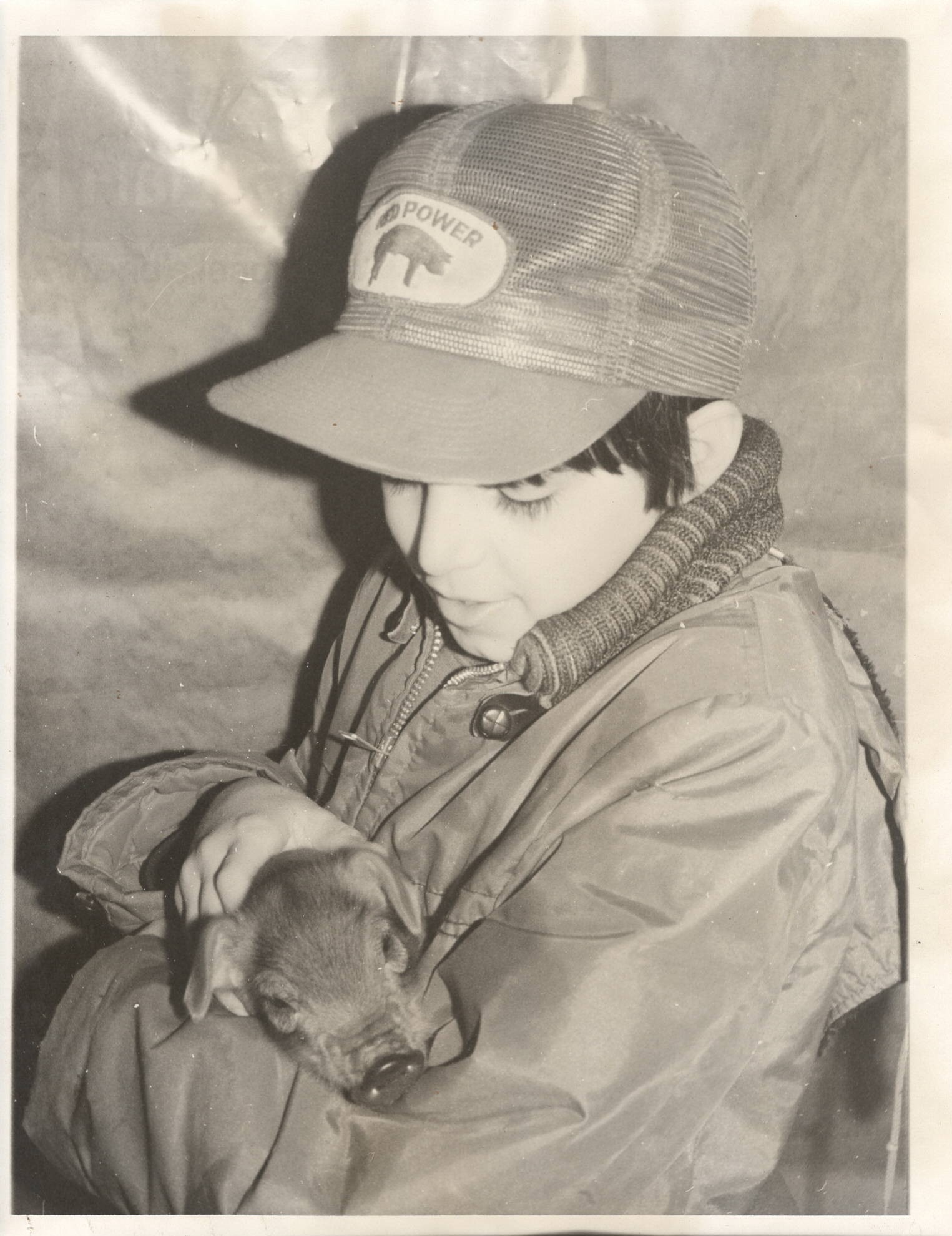
By the time See was in high school, he had 60 pigs. “It became a whole family project,” he says. By that point, his mom had started a career as a 4-H agent. Through his parents’ involvement with industry groups, See knew extension swine specialists in three states.
He chose Michigan State for college, planning to return home to farm. But given the farm’s modest size and increasing urban pressure, he opted for graduate school at the University of Georgia, where he earned master’s and doctoral degrees in swine genetics, graduating in 1992.
“At that time, North Carolina was exploding in the swine industry,” See says. “Smithfield had just opened the world’s largest pork processing plant in Tar Heel, and Murphy Farms, Prestage, Carroll’s Foods and others were growing fast. It was the exciting place to be.”
As an Extension swine specialist based at the Vernon G. James Research and Extension Center in Plymouth, See started work at a crossroads for the pork industry.
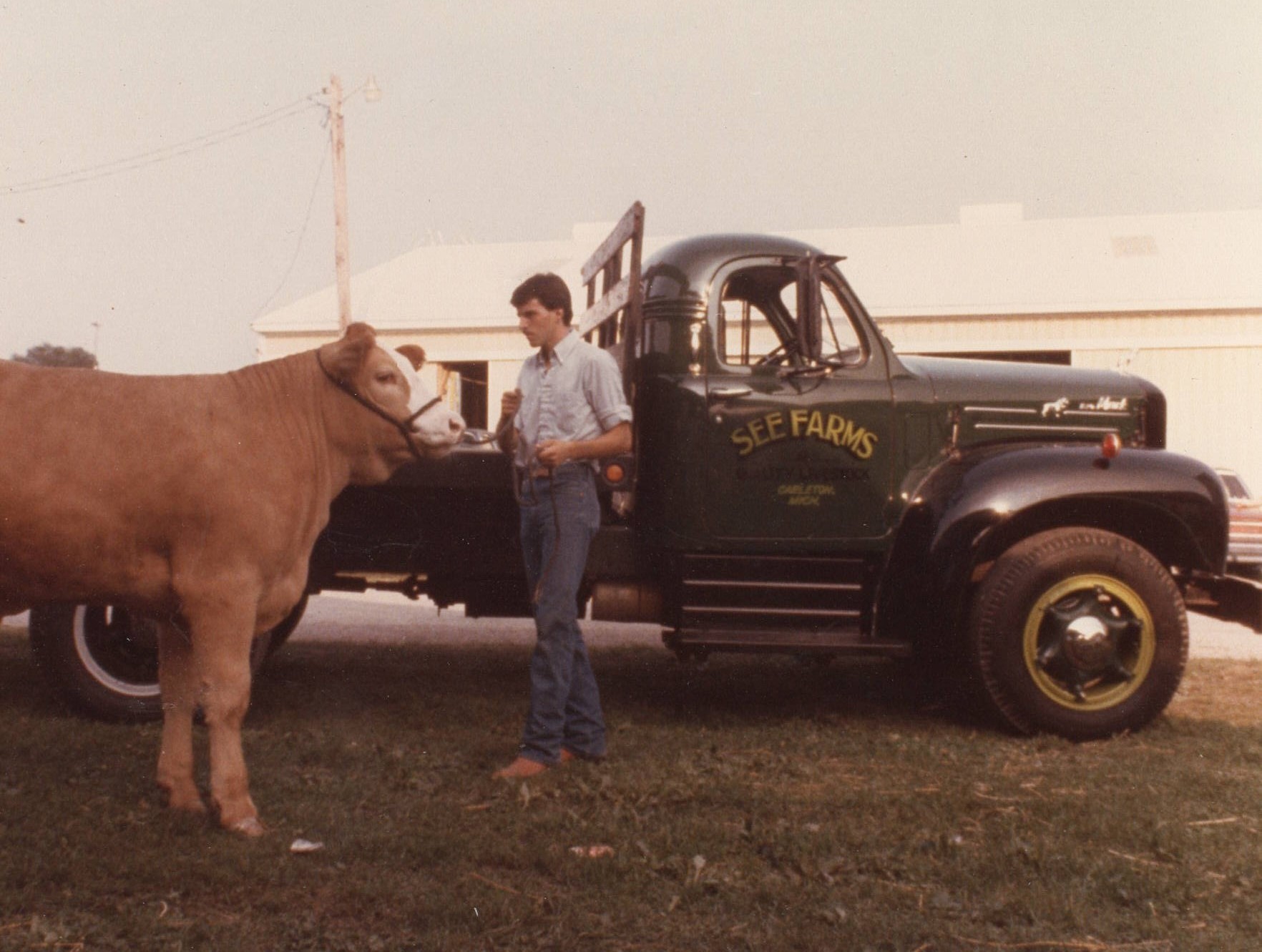
“All the rules and regulations that dictate hog farming today were coming into place,” he says. “I always tell people that Jack Parker, the swine specialist in the northeast before me, spent his whole career helping these independent producers get into business. And I spent three years helping them get out. … We went to more of the integrated industry that exists today at that point, which was a major shift.”
See logged 60,000 miles for work in his third year before moving to campus, a centralized location that allowed him to spend more time with his two young children. He continued Extension work in breeding, genetics and production management, focusing on reducing feed costs and improving bacon quality. He served as department liaison with commodity groups, becoming a full professor in 2004.
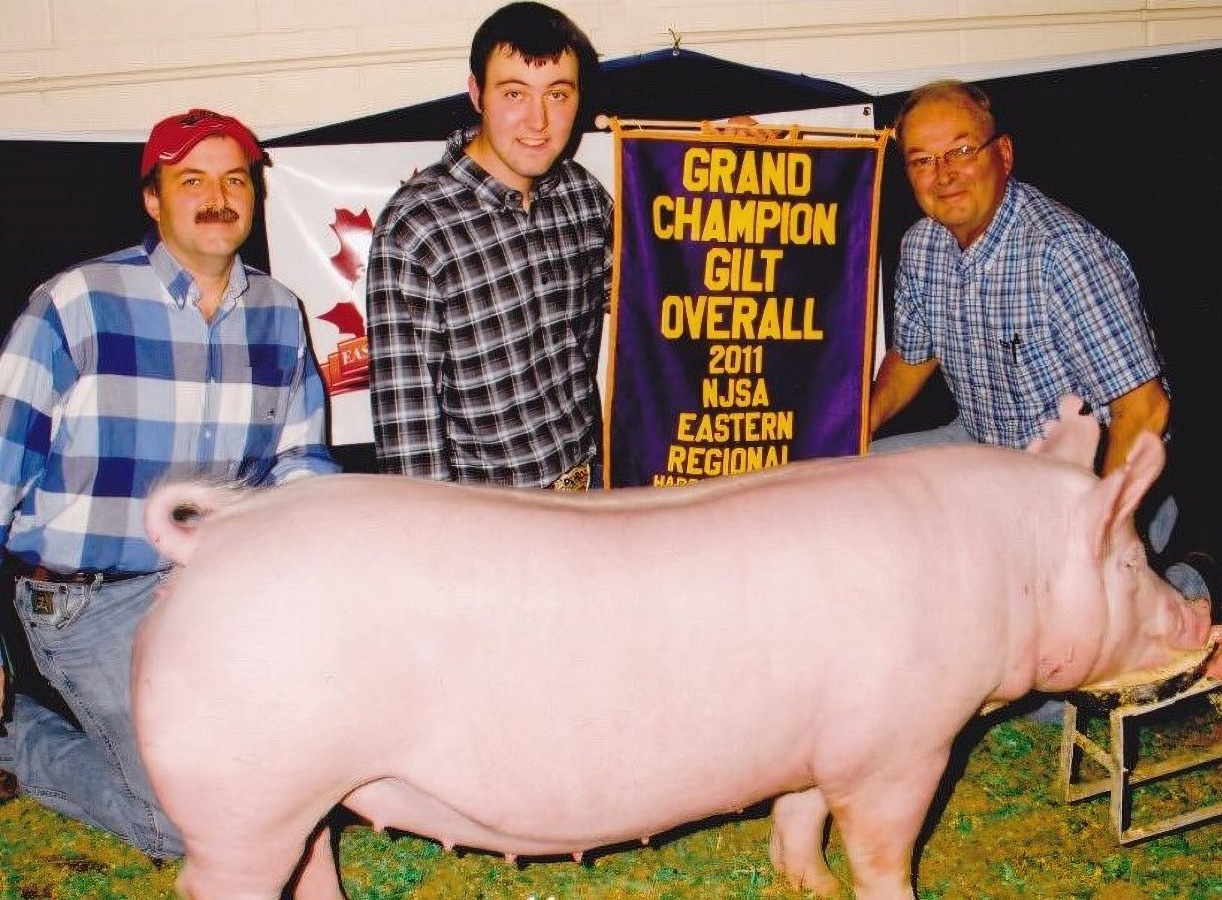
In 2008, during downsizing amid the recession, he stepped into the interim department head position.
“I saw it as an opportunity to try to help, to ensure that we had strong programs that keep a balance of research, teaching and Extension to fulfill our land-grant mission,” says See, whose appointment was made permanent in 2010. “We have to value our Extension program, our research program, our teaching program, because animal science isn’t animal science without all of it.”
Boardroom to Barn
Like See, many students in the department had an early love of animals. That’s why he makes time to visit with youngsters at Farm Animal Days and take prospective students and their families on a tour of Lake Wheeler Road Field Lab.
Enrollment in animal science has nearly doubled during See’s leadership, reaching 1,000 undergraduate and graduate students, many with a suburban or urban background and an interest in veterinary medicine.
He’s known for teaching a graduate course on science and communication, problem-solving with faculty and staff, and maintaining strong partnerships with industry leaders.
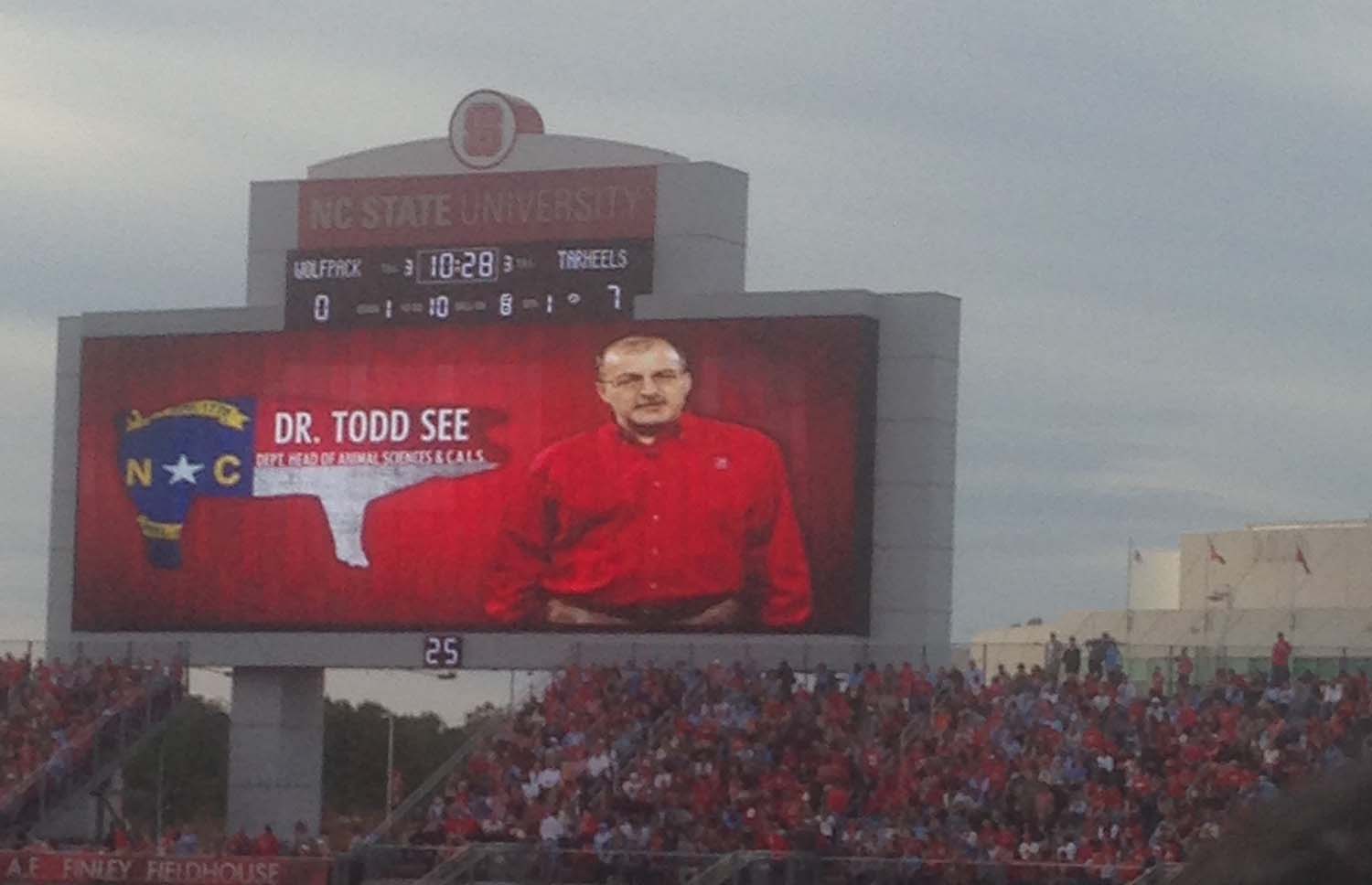
“He’s one of the few people I know who can go right from a corporate meeting in a coat and tie to a 4-H livestock judging contest in blue jeans and be genuine and comfortable in both,” says Brent Jennings, Extension associate for 4-H livestock.
See received the 2025 Distinguished Service Award from the National Pork Board, which cited his vision and leadership. As the longest-serving department head among his current CALS peers, he follows values he learned from his family and 4-H: helping others and making a contribution.
“It probably informs everything I do, which is why I think I’ve stuck at the department head job so long,” he says. “How can I help people be better versions of themselves?”
- Categories:
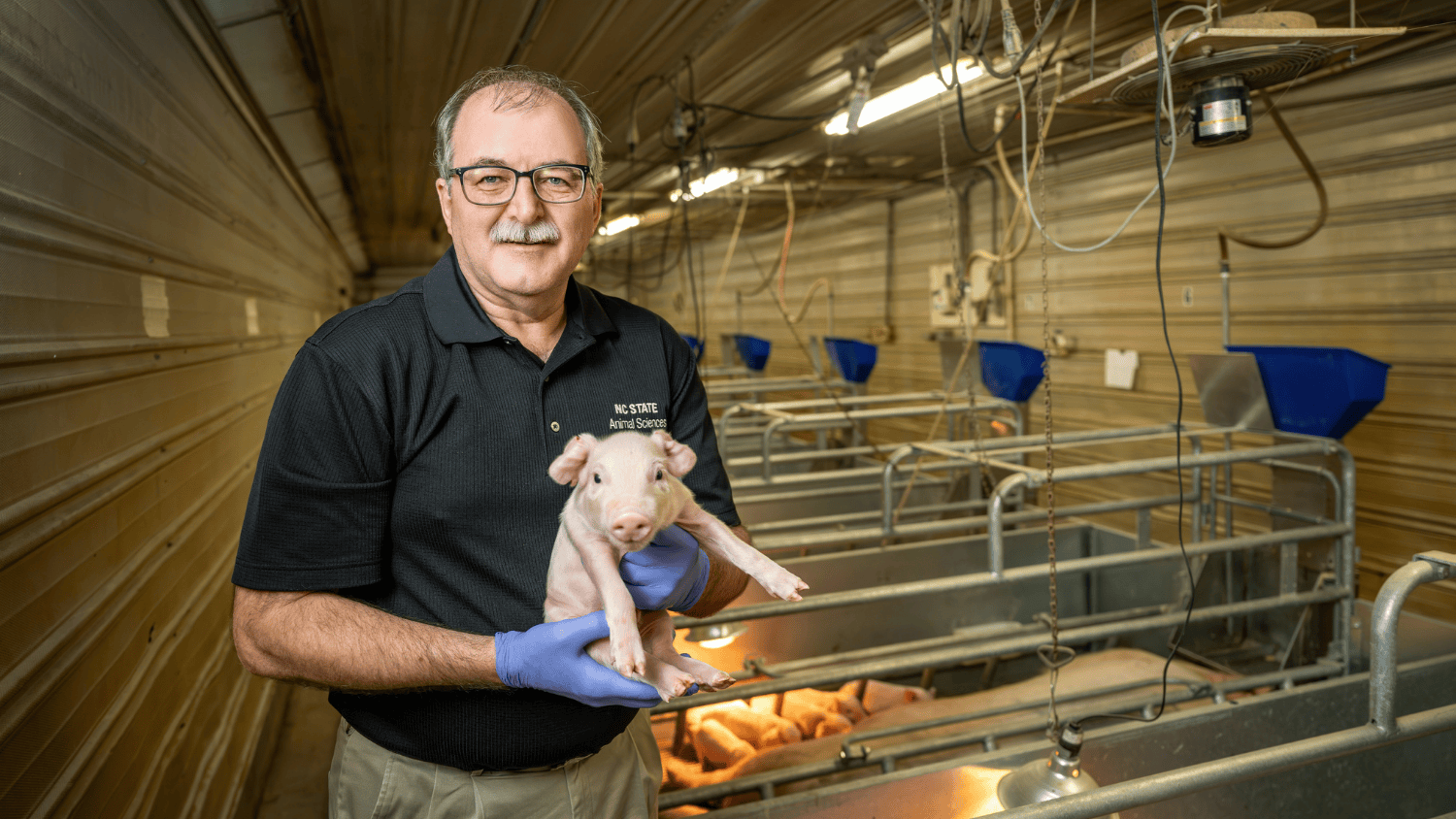
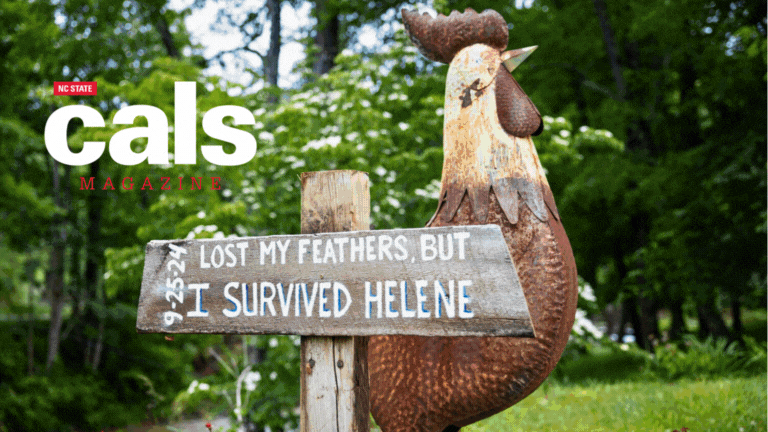
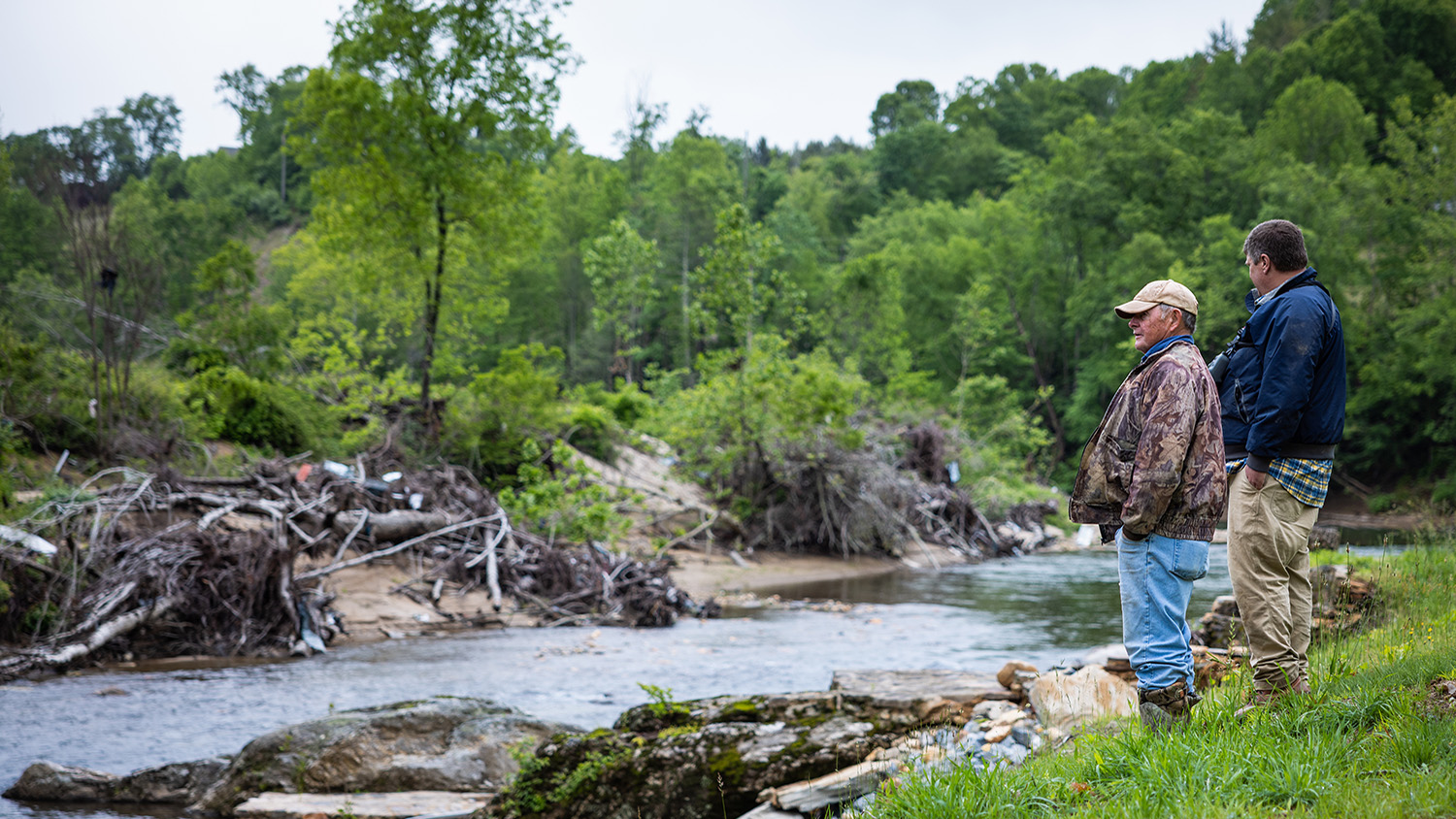

Congrats on an impressive career and impact!